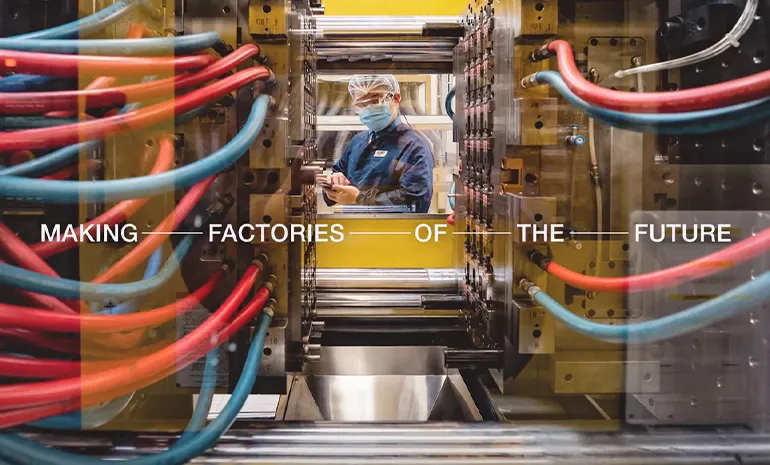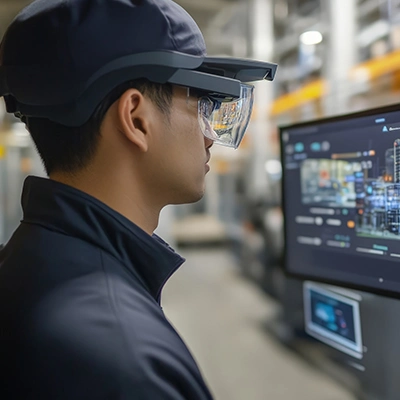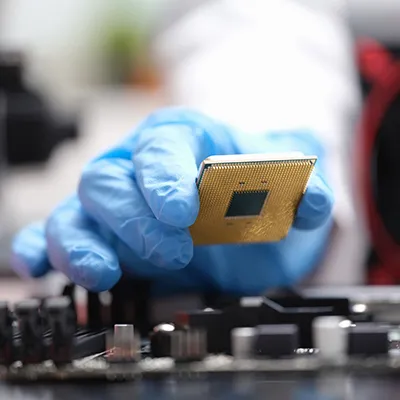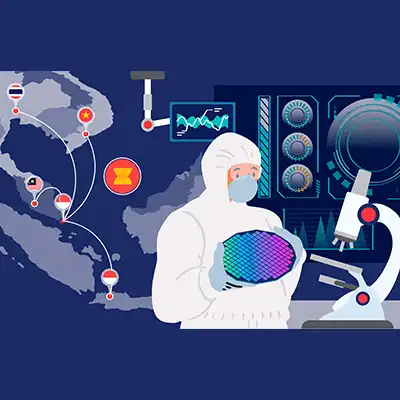2. Fostering innovation through collaboration
Singapore's innovation strategy in advanced manufacturing thrives on collaboration. This is evident in initiatives like Agency for Science, Technology, and Research (A*STAR)'s Advanced Remanufacturing and Technology Centre (ARTC), a public-private platform where industry leaders, research institutes, and government agencies co-develop and testbed advanced manufacturing solutions. Another example is the National Additive Manufacturing Innovation Cluster (NAMIC), which focuses on accelerating the adoption of 3D printing technology across various sectors, driving innovation and productivity.
Companies can also partner with Singapore’s local enterprises – including 286,000 small and medium-sized enterprises - to localise solutions for Asian and global markets, or to grow a network of local suppliers to enhance supply chain resilience. Local enterprises also benefit through access to resources and expertise. For example, Singapore-headquartered precision plastics engineering company Sunningdale Tech, worked together with a global multinational company (MNC) to co-develop a new capability and prototype for a global automotive customer. With this new capability, Sunningdale went on to win several projects with other customers. The government's Partnerships for Capability Transformation (PACT) scheme supports such collaborations, by helping Singapore-based multinational corporations MNCs and their local partners defray part of the costs incurred when they enter into a partnership.
3. Integrating sustainability across manufacturing and logistics
Singapore is supporting businesses in their efforts to decarbonise and capture new green economy opportunities across the region. This is being done through a mix of industry initiatives and grants. For example, JTC Corporation, which manages more than 80 per cent of industrial land in Singapore, is contributing to Singapore’s solar deployment goal by installing solar panels where feasible. Their efforts aim to help Singapore achieve at least 2 gigawatt-peak (GWp) of installed solar capacity by 2030, making up about 3 per cent of the city-state’s total electricity demand.
As Singapore works to improve access to renewable energy, EDB is supporting businesses through energy efficiency and sustainability reporting grants. To support companies in their emissions reduction efforts, EDB has enhanced the Resource Efficiency Grant for Emissions by lowering the carbon abatement threshold from 500 tonnes to 250 tonnes per annum, allowing more industrial facilities to tap on the grant and take on projects that improve energy efficiency and reduce emissions.
Several manufacturers are embarking on green solutions. Global biopharma player AstraZeneca's antibody-drug conjugates (ADC) manufacturing facility is designed to emit zero carbon from its first day of operations. Similarly, biopharmaceutical giant GSK will power its three manufacturing sites in Singapore with 100 per cent renewable energy from January 1, 2025. Under GSK’s 10-year energy deal with Sembcorp Industries Ltd, the electricity demand for GSK’s manufacturing facilities will be covered by renewable energy certificates from Sembcorp’s solar projects, with GSK’s on-site solar panels providing about 3 per cent of its power needs.
Singapore’s logistics sector, comprising best-in-class players supporting manufacturers’ efforts to orchestrate their regional and global supply chains from here, is also embracing eco-friendly practices while maintaining efficiency and competitiveness.
Toll Group, a leading logistics and transportation company, is utilising new technologies at its facilities in Singapore to reduce energy consumption and greenhouse gas emissions. These technologies include driverless vehicles and smart-city telematics to track and optimise road fleet in real-time.
DSV, also a global logistics and supply chain service provider, is constructing a new warehouse facility in Singapore called DSV Pearl with aims of achieving LEED Gold and BCA Green Mark Platinum certifications. This facility will incorporate solar panels to harness renewable energy that can power the facility and onsite EV chargers, and a smart lighting system to optimise energy consumption.
Singapore: A Critical Global Node for Advanced Manufacturing
Singapore's strong track record in advanced manufacturing, world-class infrastructure, and commitment to innovation makes it an attractive destination for companies seeking to embrace the future of manufacturing. With robust connectivity, supportive government policies, and a thriving research ecosystem, Singapore is a ready and reliable partner to translate new ideas into real-world solutions that benefit both businesses and the global manufacturing community.
Discover how Singapore can accelerate your advanced manufacturing journey by downloading our Advanced Manufacturing Guide.







